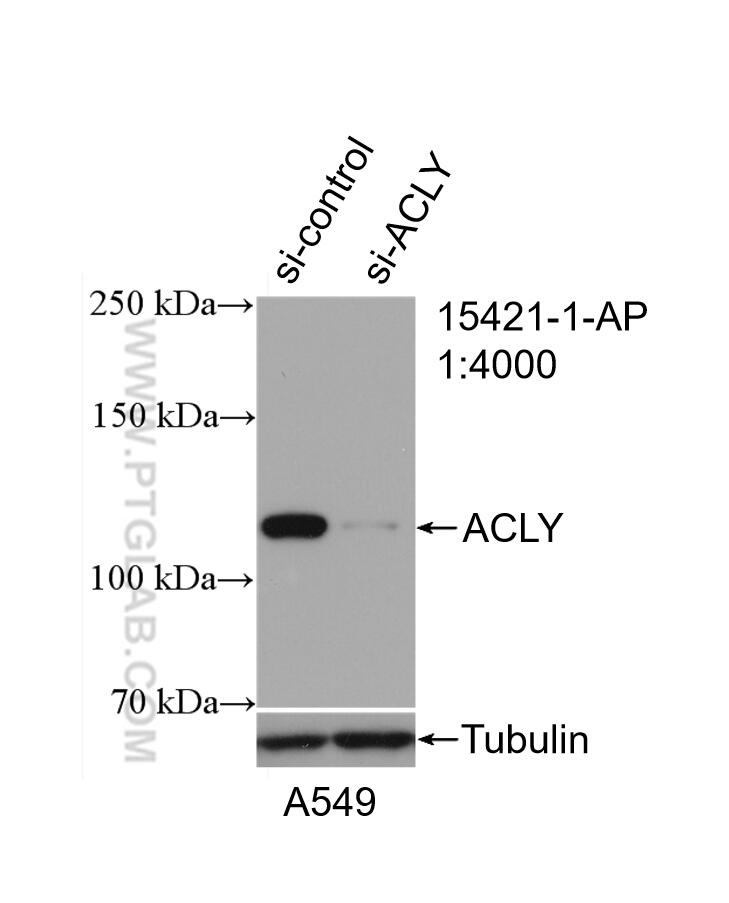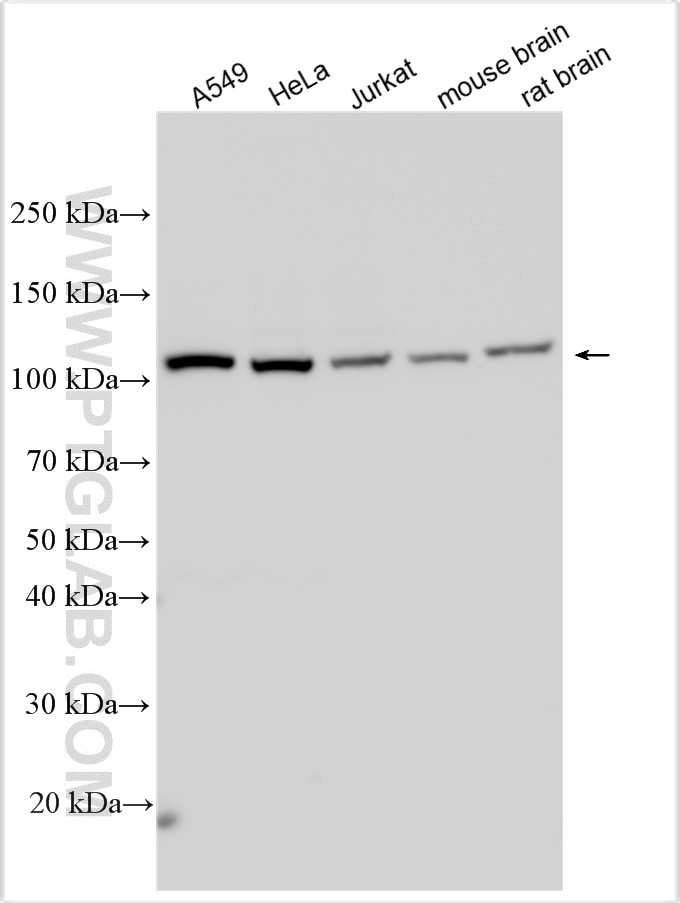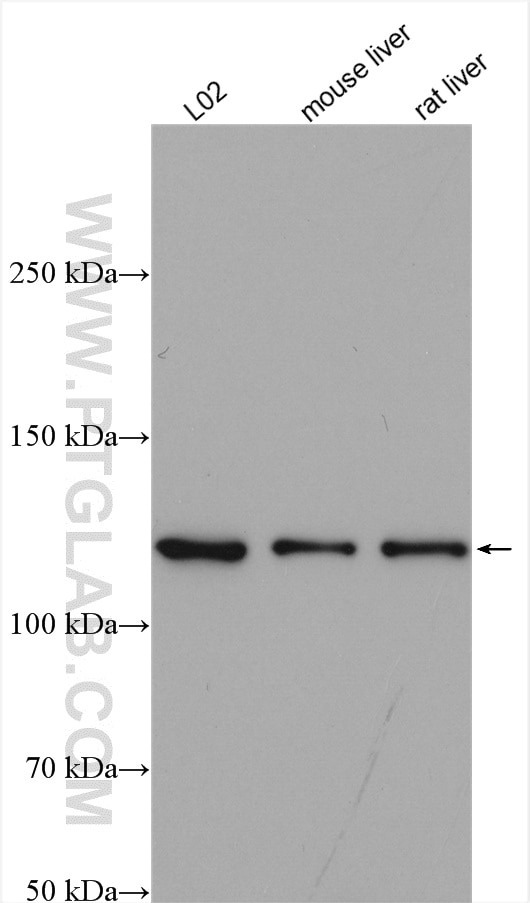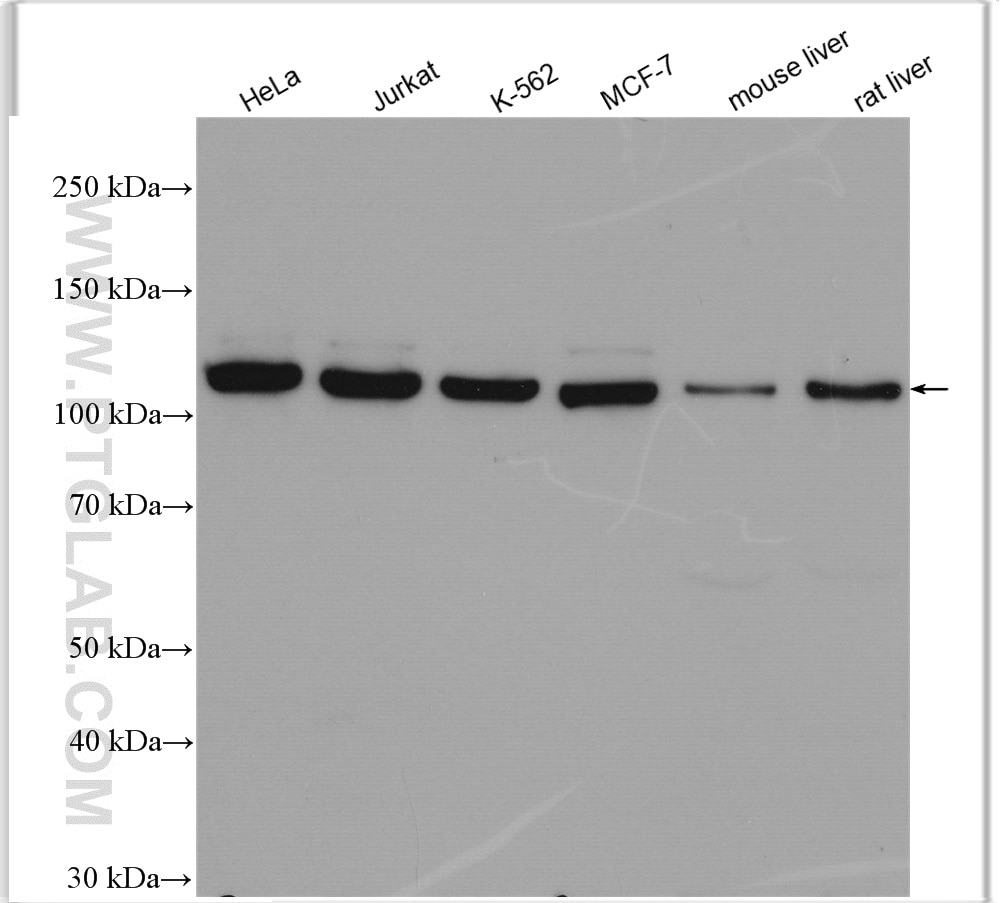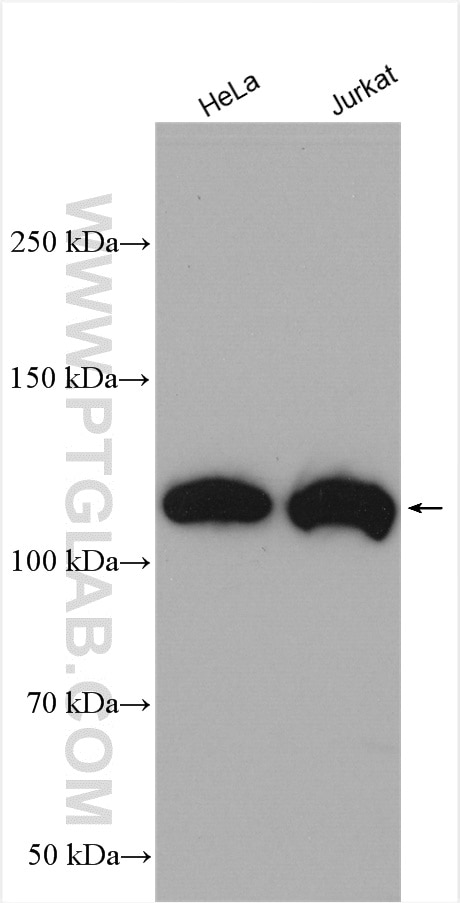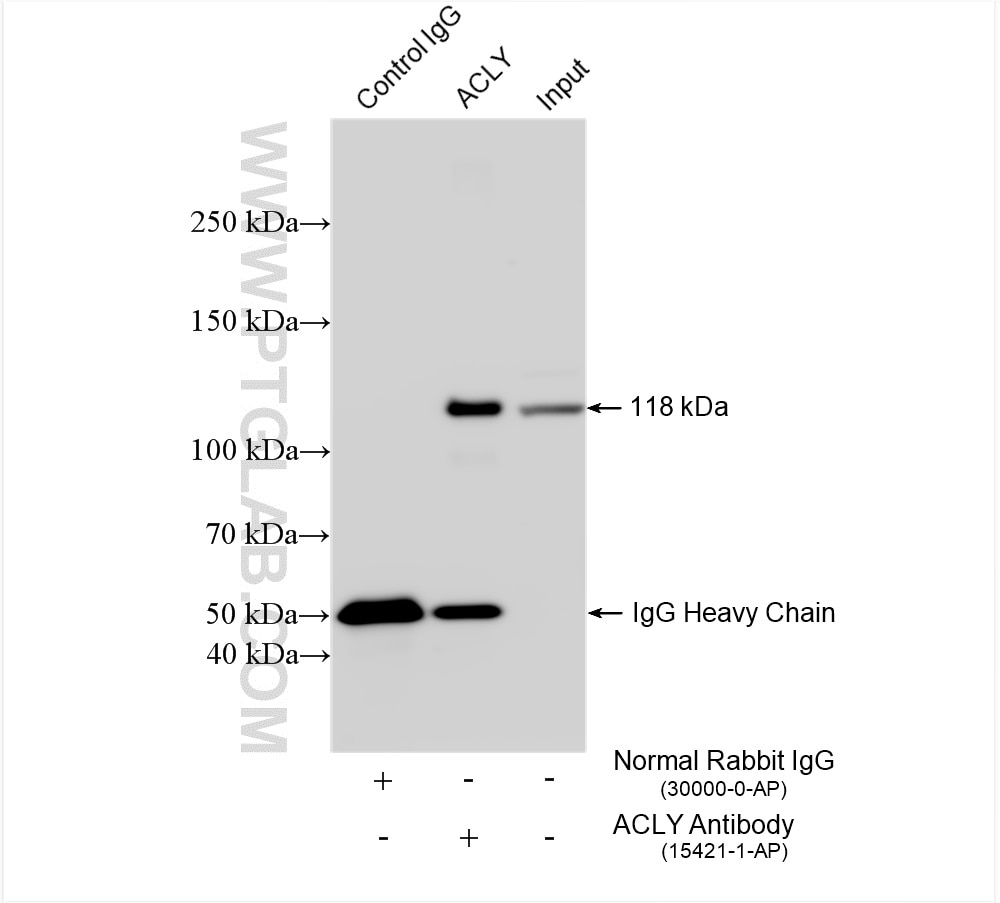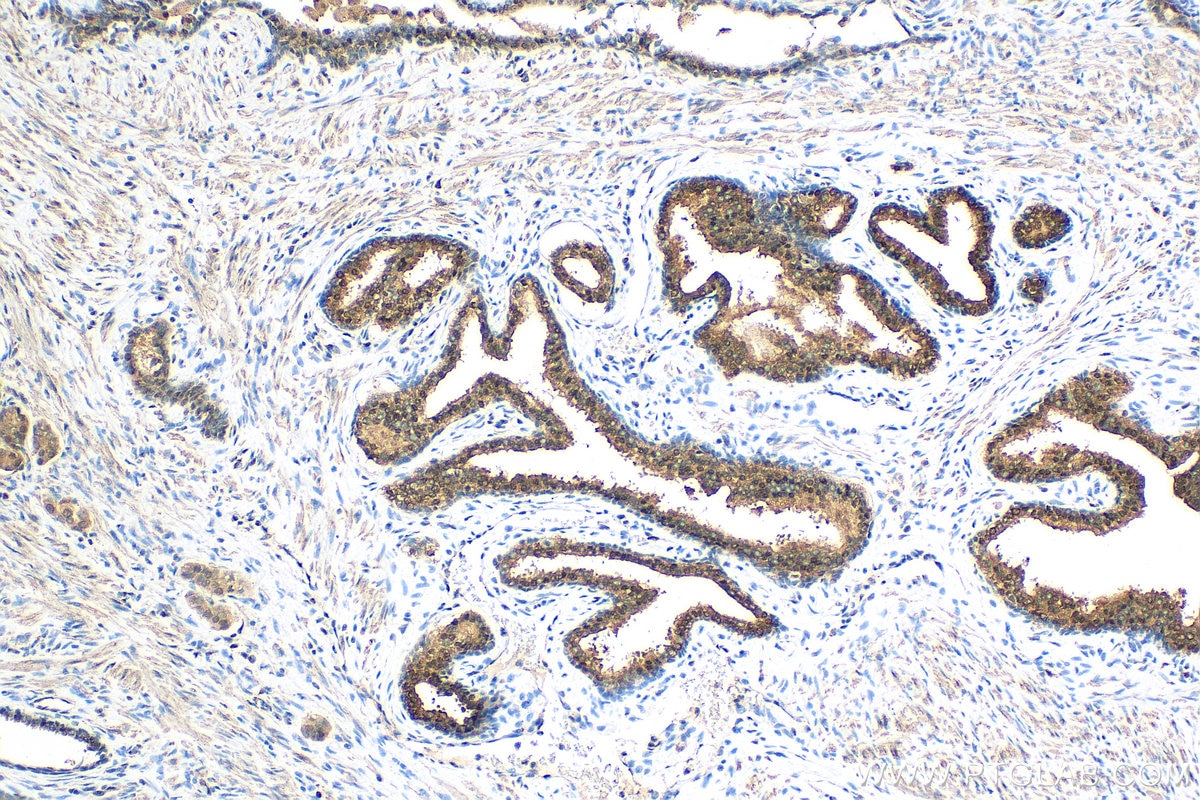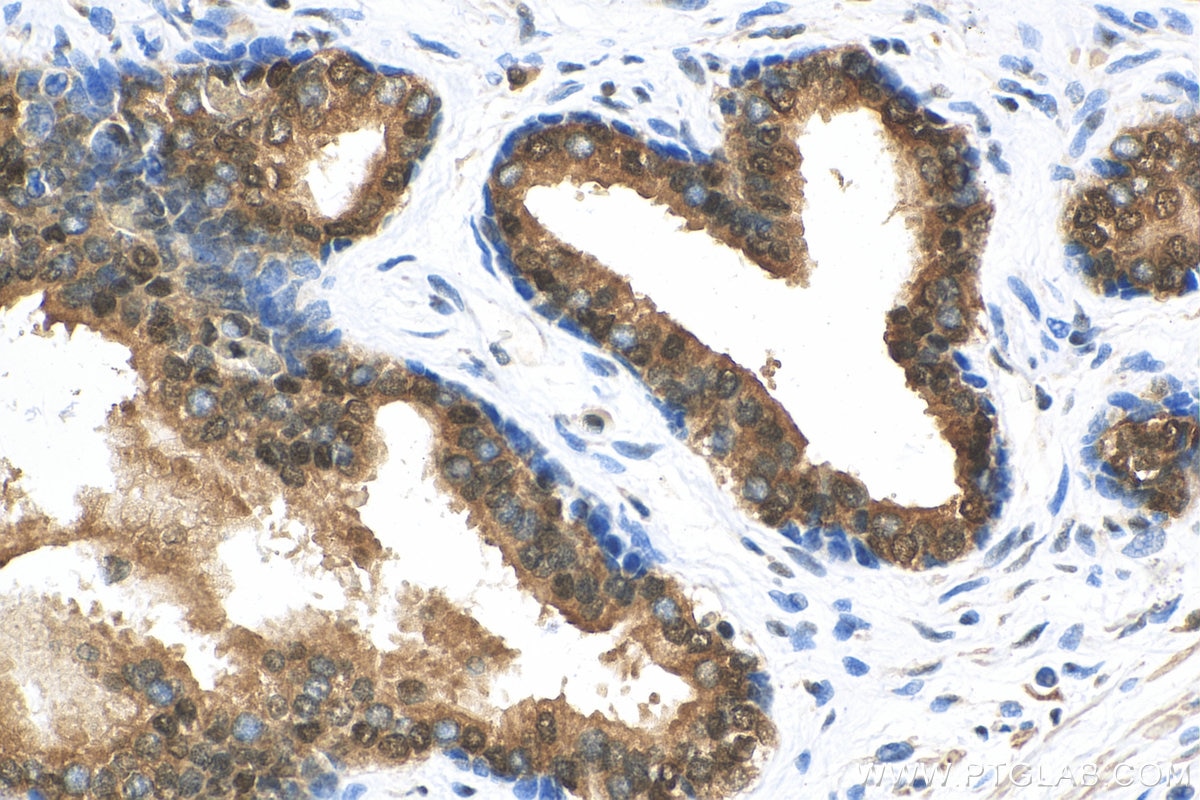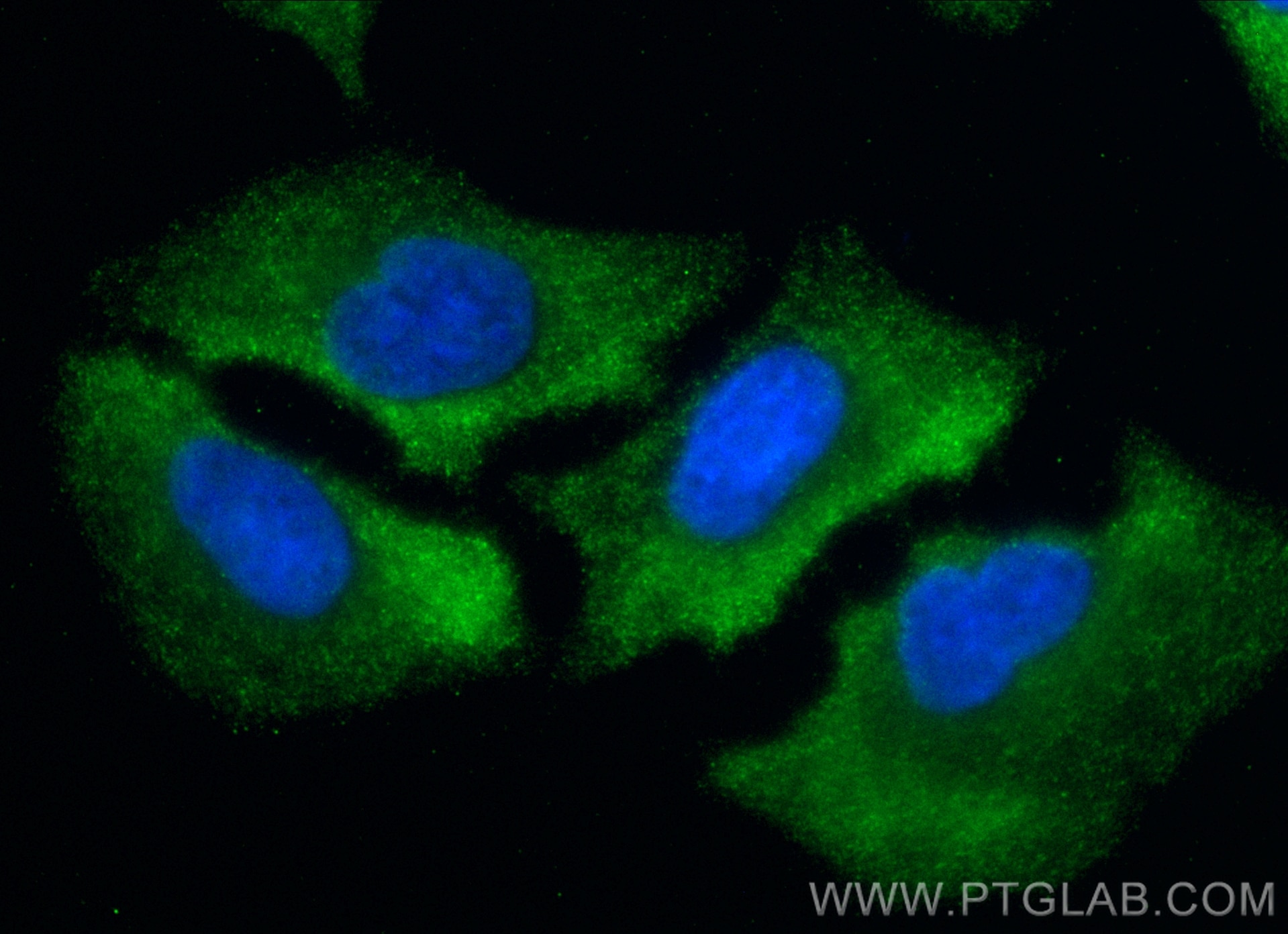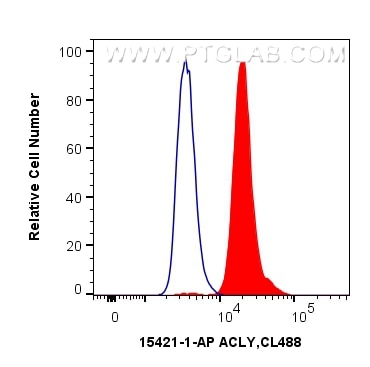Validation Data Gallery
Tested Applications
| Positive WB detected in | A549 cells, HeLa cells, L02 cells, Jurkat cells, mouse brain tissue, rat brain tissue, K-562 cells, MCF-7 cells, mouse liver tissue, rat liver tissue |
| Positive IP detected in | HeLa cells |
| Positive IHC detected in | human prostate cancer tissue Note: suggested antigen retrieval with TE buffer pH 9.0; (*) Alternatively, antigen retrieval may be performed with citrate buffer pH 6.0 |
| Positive IF/ICC detected in | A549 cells |
| Positive FC (Intra) detected in | HepG2 cells |
Recommended dilution
| Application | Dilution |
|---|---|
| Western Blot (WB) | WB : 1:5000-1:50000 |
| Immunoprecipitation (IP) | IP : 0.5-4.0 ug for 1.0-3.0 mg of total protein lysate |
| Immunohistochemistry (IHC) | IHC : 1:50-1:500 |
| Immunofluorescence (IF)/ICC | IF/ICC : 1:50-1:500 |
| Flow Cytometry (FC) (INTRA) | FC (INTRA) : 0.40 ug per 10^6 cells in a 100 µl suspension |
| It is recommended that this reagent should be titrated in each testing system to obtain optimal results. | |
| Sample-dependent, Check data in validation data gallery. | |
Published Applications
| KD/KO | See 18 publications below |
| WB | See 90 publications below |
| IHC | See 7 publications below |
| IF | See 11 publications below |
| IP | See 4 publications below |
| CoIP | See 4 publications below |
Product Information
15421-1-AP targets ACLY in WB, IHC, IF/ICC, FC (Intra), IP, CoIP, ELISA applications and shows reactivity with human, mouse, rat samples.
| Tested Reactivity | human, mouse, rat |
| Cited Reactivity | human, mouse, rat, chicken |
| Host / Isotype | Rabbit / IgG |
| Class | Polyclonal |
| Type | Antibody |
| Immunogen |
CatNo: Ag7709 Product name: Recombinant human ACLY protein Source: e coli.-derived, PGEX-4T Tag: GST Domain: 751-1101 aa of BC006195 Sequence: MFSSEVQFGHAGACANQASETAVAKNQALKEAGVFVPRSFDELGEIIQSVYEDLVANGVIVPAQEVPPPTVPMDYSWARELGLIRKPASFMTSICDERGQELIYAGMPITEVFKEEMGIGGVLGLLWFQKRLPKYSCQFIEMCLMVTADHGPAVSGAHNTIICARAGKDLVSSLTSGLLTIGDRFGGALDAAAKMFSKAFDSGIIPMEFVNKMKKEGKLIMGIGHRVKSINNPDMRVQILKDYVRQHFPATPLLDYALEVEKITTSKKPNLILNVDGLIGVAFVDMLRNCGSFTREEADEYIDIGALNGIFVLGRSMGFIGHYLDQKRLKQGLYRHPWDDISYVLPEHMSM 相同性解析による交差性が予測される生物種 |
| Full Name | ATP citrate lyase |
| Calculated molecular weight | 121 kDa |
| Observed molecular weight | 120 kDa |
| GenBank accession number | BC006195 |
| Gene Symbol | ACLY |
| Gene ID (NCBI) | 47 |
| RRID | AB_2223741 |
| Conjugate | Unconjugated |
| Form | |
| Form | Liquid |
| Purification Method | Antigen affinity purification |
| UNIPROT ID | P53396 |
| Storage Buffer | PBS with 0.02% sodium azide and 50% glycerol{{ptg:BufferTemp}}7.3 |
| Storage Conditions | Store at -20°C. Stable for one year after shipment. Aliquoting is unnecessary for -20oC storage. |
Background Information
ACLY(ATP-citrate synthase) is also named as ACL. It is the primary enzyme responsible for the synthesis of cytosolic acetyl-CoA. ACLY serves as not only a target in oxygenated cells for suppression of lipid synthesis and histone acetylation, but also as a susceptible target in hypoxic cells to restore inhibition of glycolysis. In nonsmall cell lung carcinoma and hepatocellular carcinoma, ACLY is overexpressed compared with normal parenchyma suggesting that ACLY may represent a common target among highly malignant tumors(PMID:19795461). This protein has 2 isoforms produced by alternative splicing.
Protocols
| Product Specific Protocols | |
|---|---|
| FC protocol for ACLY antibody 15421-1-AP | Download protocol |
| IF protocol for ACLY antibody 15421-1-AP | Download protocol |
| IHC protocol for ACLY antibody 15421-1-AP | Download protocol |
| IP protocol for ACLY antibody 15421-1-AP | Download protocol |
| WB protocol for ACLY antibody 15421-1-AP | Download protocol |
| Standard Protocols | |
|---|---|
| Click here to view our Standard Protocols |
Publications
| Species | Application | Title |
|---|---|---|
Cell Acetate Production from Glucose and Coupling to Mitochondrial Metabolism in Mammals.
| ||
Cell Metab High dietary fructose promotes hepatocellular carcinoma progression by enhancing O-GlcNAcylation via microbiota-derived acetate | ||
Mol Cell Quantitative subcellular acyl-CoA analysis reveals distinct nuclear metabolism and isoleucine-dependent histone propionylation
| ||
Mol Cell Nuclear Acetyl-CoA Production by ACLY Promotes Homologous Recombination.
|

